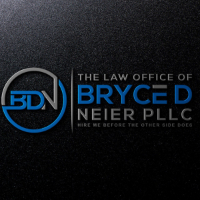 Parkton Juvenile Law Lawyers, North Carolina
Parkton Juvenile Law Lawyers, North Carolina
Not enough matches for Parkton Juvenile Law lawyer.
Below are all Parkton Criminal lawyers.
Sponsored Lawyers
1-2 of 2 matches
Divorce & Family Law, Criminal, Lawsuit & Dispute, Entertainment, Ethics
The Law Office of Bryce D. Neier is based in Fayetteville, North Carolina and I handle a wide range of civil matters. However, the focus of my practice is domestic law – divorce, child custody, child support, alimony, and property division – as well as DUI / DWI and traffic violations. I routinely represent clients throughout Cumberland, Hoke, and Robeson Counties, which includes the cities of Fayetteville and Lumberton, and the town of Raeford. In addition, I am committed to serving military personnel and their families stationed at Fort Bragg, Pope Air Force Base, and overseas.
(more)Car Accident, Motorcycle Accident, Criminal, Wrongful Death, Workers' Compensation
Andrew R. Dempster Jr. "Drew" is a second generation attorney. Drew grew up in Fayetteville, North Carolina where he graduated from Pine Forest High School. He received his undergraduate degree from Methodist University and his Law degree from North Carolina Central School of Law. Before joining the Smith Dickey Dempster Law Firm, Drew was an Assistant District Attorney in Cumberland County, North Carolina.
(more)






